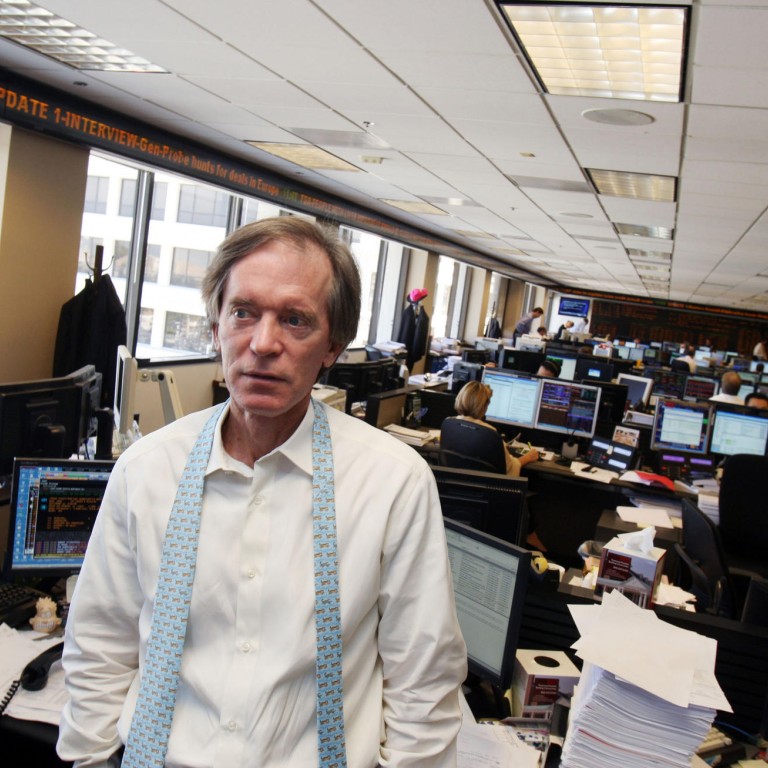
Funds: Investors urged to avoid bonds
Paul Smith, a retired attorney in Virginia, lost 30 per cent of his US$401,000 retirement savings during the financial crisis.
He shifted to bond funds from stocks and now holds at least 60 per cent of his savings in fixed income. While payouts from some of the bond funds barely keep up with inflation, Smith says he's worried about another decline in stocks.
"My wife and I are very risk averse," the 64-year-old says. "Frankly, the volatility in the market is a concern to us."
Investors like Smith have poured US$982 billion into US bond funds from January 2008 to the end of August while pulling US$439 billion out of equity funds and sacrificing a 115 per cent rally in stocks for the perceived safety of bonds. Money managers and fund executives such as Pimco's Bill Gross and BlackRock's Laurence Fink are warning that the flight to bonds leaves savers exposed to new losses once interest rates rise, a risk many retail clients aren't aware of.
While investors who hold bonds until they mature don't lose money unless the issuer defaults, mutual funds and other holders who trade the securities to maximise yields can suffer if interest rates rise. Long-term Treasuries have had almost as many losing years as stocks in the past 85 years, and fared worse than equities when adjusted for inflation.
"The greatest irony is the perception of safety in a fixed-income security," says Mitchell Stapley at Fifth Third Asset Management. "As the head fixed-income guy here, when I look at bonds today, they scare me."
In 1994, when the US Federal Reserve raised its target rate six times, bond funds on average lost 4.6 per cent. Investors pulled US$62.5 billion from the category that year, compared with deposits into equity funds of US$114.5 billion, according to the Investment Company Institute, which represents the mutual-fund industry.
In 2009, when stock markets hit bottom and the economy started to rebound, long-term Treasuries fell 17 per cent after adjusting for inflation. "If interest rates rise rapidly there would be losses in bond funds," says Mercer Bullard, associate professor of law at the University of Mississippi. "That can hit people with unexpected losses."
Ryan Melvey, 21, holds half of his investments in bonds, a US$19,000 portfolio that he started at age 16 with about US$4,000. He was fully invested in equities in 2008 and has built a portfolio that he thinks will perform regardless of the economy.
"I never want to go through that again," Melvey says of his losses during the financial crisis. "I needed a more diversified portfolio and bonds play a role in that."
Melvey has 25 per cent of his portfolio invested in Treasuries and 25 per cent in the iShares Barclays 20+ year Treasury Bond Fund, an exchange-traded fund. If interest rates rise by 0.25 percentage points, the ETF may lose 4.6 per cent.
In 2009, when long-term Treasuries slumped, bond funds posted gains of about 18 per cent as lower-rated debt rallied. Once interest rates rise, shorter duration bonds have a lower risk of losses.
The Federal Reserve has supported the bond market by keeping its target rate for overnight loans among banks between zero and 0.25 per cent since December 2008 and embarking on three rounds of asset purchases. The Fed said recently it is likely to keep the target rate near zero until mid-2015.
That helped bonds outperform stocks last year even with low borrowing costs. Bond funds returned an average 6.1 per cent in 2011; stock funds lost some 5.7 per cent. This year the average stock fund has returned 13 per cent against 6.7 per cent for the average bond fund.
Some warn that rates can't stay low forever, and investors in bonds may take losses. Gross says the US must begin closing the gap between spending and debt or inflation will result. "Bonds would be burned to a crisp," says Gross.
Fink has been urging investors to get back into equities.
